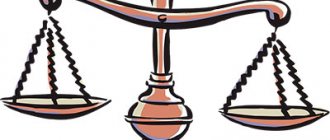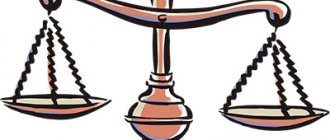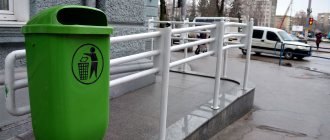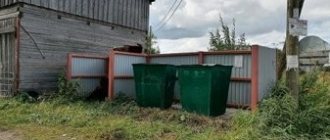In 2021, renting out housing is a popular way to make money. The law obliges a person receiving income from renting out an apartment to enter into an agreement, carry out state registration of the contract (if the agreement term exceeds 12 months), and also pay 13% of the amount received for the year as income tax. Reluctance to follow the listed rules often leads to citizens trying to avoid official registration. Therefore, when damage is caused to the housing or apartments of neighbors, the owner is left with the problem alone. Let's consider who should pay if the tenants flood the neighbors.
What to do?
Responsibility for the safety of housing and the obligation to compensate for damage caused to the property of other citizens due to flooding rests with the owner of the residential premises. Art. 1064 of the Civil Code of the Russian Federation obliges the person who caused the harm to compensate it. A Art. 210 of the Civil Code of the Russian Federation places the burden of maintaining an apartment on the owner of the property.
Therefore, in the event of flooding, responsibility for the incident lies primarily with the owner of the apartment. If there is a formal agreement between the tenants and the owner, the option of collecting costs from them is possible.
Expert opinion
Stanislav Evseev
Lawyer. Experience 12 years. Specialization: civil, family, inheritance law.
Before completing any documents, a citizen should consult with a lawyer. Only with the help of a specialist can the issue be resolved in favor of the owner. In any case, the neighbors will shift responsibility onto him. The management company also rarely wants to compensate for the damage on its own.
Even tenants will convince you of their own innocence. Therefore, any paperwork and conversations with victims should be carried out only after legal advice.
Step-by-step instruction
For the victim, the situation with the flooding by tenants and the owner has no fundamental differences.
Procedure:
- Notify the culprit about the accident or call emergency services to shut off the water.
- Call an engineer from the management company or homeowners association to draw up an act.
- Contact a specialized company to assess the damage.
- If the culprit is not identified, then order an examination.
- Send a pre-trial claim to the culprit.
- Draw up a statement of claim and send it to the court.
When recovering damages, claims can be addressed to the owner and tenants jointly and severally. Depending on the situation, the court may establish the proper defendant or divide the amount of damages between them.
Pre-trial settlement
On the one hand, the law does not oblige the victim to comply with the claim procedure. On the other hand, going to court is a last resort measure that is used if other methods have failed. Therefore, it is recommended to comply with the procedure for pre-trial settlement.
The claim must be made in writing and sent to the owner of the apartment. It is he who is responsible for the safety of his home, even if he does not actually live in it (Article 210 of the Civil Code of the Russian Federation).
The claim must include:
- details of the culprit;
- information about the victim;
- document's name;
- information about the incident;
- details of the act;
- damage assessment data;
- amount of compensation;
- debt repayment period and bank account details;
- warning of recourse to court in case of non-compliance.
Sample claim
The following must be attached to the claim:
- copies of the bay act;
- a copy of the assessment report;
- copies of documents for the apartment.
Documents are sent by registered mail with notification. The period specified in the claim begins to run from the moment the documents are delivered to the culprit. If the funds are not credited to the account within the specified period, the victim will have to go to court.
Going to court
To go to court, you must prepare the following documents:
- passport;
- extract from the Unified State Register for the apartment;
- bay act;
- evaluation report;
- a receipt for payment of the assessment;
- results of the examination (if carried out);
- a receipt for payment for the examination;
- a copy of the claim;
- receipt of payment of state duty;
- notification of receipt of claim.
Note! The victim may ask the court to reimburse the costs of postage, assessment and examination if he provides the court with receipts for payment of these costs. Without receipts, the court will refuse to satisfy the claim.
The statement of claim must include the following information:
- name of the court;
- data of the victim;
- information about the culprit of the accident;
- cost of claim;
- name of the claim;
- information about the affected apartment;
- information about the accident;
- information about the plaintiff’s rights to housing;
- information about the assessment;
- an indication of the execution of the act;
- evidence that the defendant refused to resolve the situation peacefully;
- data on the examination (if carried out);
- reference to law;
- the plaintiff's claims for damages;
- claims for payment of process costs;
- list of documents;
- date and signature.
Sample claim
The claim is submitted:
- to the magistrate's court - if the amount of damage (assessment of harm caused) is less than 50,000 rubles;
- to the district court - if the amount of damage exceeds 50,000 rubles.
Note! When determining the amount of damage caused, the amount of state duty, requirements for reimbursement of funds spent on paying for the assessment, postage, and examination are not taken into account.
Who is to blame if a battery, pipe, or riser in an apartment burst and flooded the neighbors below?
What to do and how to recover damages if the neighbors above flooded? Step-by-step instruction
Procedure
The citizen must strictly follow the procedure. If the owner cannot immediately arrive at the scene of the accident, then it is necessary to send an authorized representative.
Algorithm of actions
| No. | Owner actions | A comment |
| 1 | Take measures to eliminate the accident | First of all, the property owner must personally arrive at the scene of the accident and take all possible measures to eliminate it. Call the emergency team and warn your neighbors. |
| 2 | Have a conversation with your neighbors | At the first stage, you do not need to promise anything to your neighbors. Since compensation for damage will be assigned to the owner only if his guilt is proven. |
| 3 | Call a representative of the management company | When calling emergency services, information must be entered in a special log. A representative of the management company must visit the accident site at the request of the owner no later than 3 days from the date of filing the application. |
| 4 | File a flood report | The document is necessary to formalize the situation. It is on this basis that victims will be able to recover damages, and the owner of the apartment will be able to prove innocence. |
| 5 | Resolve financial issue | If the guilt of the apartment owner is obvious, then it is advisable to reach an amicable agreement with the victims and pay compensation. In return, you must take a receipt with a note indicating the waiver of claims. Otherwise, the victims will go to court and will have to pay additional state fees. |
Arbitrage practice
Every year, the number of disputes regarding compensation for damage after an apartment is flooded increases. Therefore, a stable judicial practice has been formed.
Often the culprit tries to shift the blame to the management company or HOA. But the results of the examination accurately indicate the causes of the incident.
Example. In the apartment of Tazina K.A. her son-in-law lived there. The man flooded his neighbor from below. She went to court to recover damages. In court Tazina K.A. explained that the cause of the flood was a faulty roof. She repeatedly wrote complaints to the management company to have the roof repaired. In court, a representative of the management company explained that the roof had been repaired. And the results of the examination showed that in the culprit’s apartment there were only old traces of a roof leak. And the faulty toilet hose was to blame for the flood in the plaintiff’s apartment. The owner's son-in-law managed to fix the leak, but when drawing up the report, he informed the engineer about the causes of the accident. As a result, the court decided to recover damages, costs of assessment and examination from Tazina K.A. (Determination of the Leninsky District Court of Tomsk No. 11-85/2011 dated August 3, 2011 in case No. 11-85/2011).
Going to court
If the conflict has not been resolved voluntarily, then the issue must be resolved in court. In this case, the injured party must assess the damage caused. The person at fault is billed based on the assessment report.
In 2021, there is significant case law regarding neighborhood flooding. As practice shows, the question of a party’s guilt is not always resolved unambiguously.
Therefore, when going to court, the applicant needs to carefully prepare. Otherwise, the victim may still owe the culprit the incident.
How can the owner prove his innocence?
If the contract does not place full responsibility on the tenant, then the owner of the apartment must reimburse the costs of repairs.
To get money from a tenant, the owner needs to prove his guilt. To do this, you need to order a construction and technical examination. The owner can order it himself or file a petition to appoint an examination to the court. The choice remains with the apartment owner, but it must be taken into account that when conducting an independent examination, you must carefully choose a company. Otherwise, the court may not accept the expert’s report as evidence.
If the expert determines that the technical communications in the apartment are in order, then the tenant will be found to be at fault for the accident.
Who should pay?
One of the main evidence in the process is the result of the examination. The specialist determines the causes of the incident and the person responsible. However, even the result of the examination is not always a guarantee of victory in court.
Example . Ilya rented an apartment. The flush cistern hose came off the toilet. As a result, the downstairs neighbor's bathroom was flooded. Neighbors went to court to recover damages. The owner of the apartment checked the documents. The result of the examination contained a number of typos that proved that the report was drawn up carelessly. The man asked the court to order a re-examination. The specialist determined that the bathroom only required whitewashing of the ceiling. Therefore, the cost of damage was significantly reduced. The defendant recovered the costs of the examination from the plaintiff. Ilya did not bear responsibility for the incident.
Each flood situation must be considered individually. First of all, it is necessary to clarify who is to blame.
In relation to a rented apartment, defendants may be:
- tenant;
- landlord;
- Management Company.
The fault of the management company
The management company or the housing cooperative is responsible for the maintenance of common property. Therefore, if the cause of the accident was a break in the riser, repair work, or high pressure in the pipes, then the blame lies with the authorized organization.
As a rule, specialists from such institutions try to shift responsibility for the accident to the owner of the apartment. Therefore, you must first contact a lawyer and subsequently order an examination.
To prove the guilt of the management company you must:
- Call a specialist.
- Record the location of the breakthrough in photos and videos.
- Order an examination.
- Provide expert access to the accident site.
- Pay for the procedure.
- Get the report.
If the apartment owner proves his innocence, he can recover his repair costs from the organization. The tenant may also demand compensation for damage to property.
The landlord's fault
All communications in the apartment must be in good condition. Therefore, in the event of damage to the property of neighbors due to a burst pipe, a damaged washing machine, or a burst toilet hose, responsibility rests with the landlord.
The law provides for the need to lease property in satisfactory condition. Although the tenant is required to carry out routine repairs of the property at his own expense, basic communications must be maintained at the expense of the owner.
The presence in the contract of a clause on the transfer of responsibility to the tenant has no legal force. In such a situation, the court often sides with the employer.
Example . Ivan rented out an apartment to Pavel. The men made an agreement. According to the terms of the contract, responsibility for causing harm to neighbors below rested with the tenant. A week later, the kitchen faucet broke. Pavel turned off the water supply and went to work. The holding device was faulty. Therefore, in the absence of the tenant, water began to drip. By evening, water flowed to the neighbors below. They recovered the amount of damages from Ivan. The man went to court to recover costs from Pavel. However, the court refused to pay him the funds. Since when renting out an apartment, the owner must guarantee the serviceability of the equipment. Responsibility for the kitchen faucet fell on the apartment owner.
If the examination proves that the landlord is guilty, then the tenant has the right to recover damages from him for damaged property. For example, funds for equipment, clothing, cosmetics that have become unusable.
If the tenant's belongings are missing during the elimination of the accident, then the blame also lies with the owner. Therefore, when opening an apartment without the presence of residents, it is necessary to notify them in advance.
Tenant's fault
The law provides for the opportunity for an apartment owner to recover costs incurred in paying neighbors from the at-fault tenant. Art. 1081 of the Civil Code of the Russian Federation provides for going to court for reimbursement of expenses by way of recourse. However, this opportunity arises only after full payment of debts to neighbors.
Example . Kirill rented out the apartment to Irina. The woman left the tap open and flooded her neighbors. The victims filed a claim in court for damages. Kirill received a writ of execution and went to court to recover funds from Irina by way of recourse. However, the court refused to satisfy the demands, since the man had not yet paid the amount of damage to the neighbors.
The tenant is at fault for flooding his neighbors in the following cases:
- a citizen caused damage to the communications system (broke a faucet, pipe, riser, broke a toilet);
- the tenant committed other culpable acts (leaving the water running, not lowering the drain hose into the sink).
Important! You can go to court to recover expenses from a tenant by way of recourse only if you have a tenancy agreement. Otherwise, the owner will not be able to prove the legality of the tenant’s presence in the apartment.
If the accident occurred through the fault of the owner, then tenants and neighbors have the right to recover from him the costs of renting alternative housing for the period while it is impossible to live in the apartment. Costs can be either paid voluntarily or recovered through the court.
What to do if tenants flood neighbors?
Question for a lawyer: Yesterday I came home from work, and my apartment was flooded by my upstairs neighbors. The apartment is constantly rented. Now a young couple lives there. Today a neighbor saw that the tenants were urgently moving out. How can I now get money from them for the damage caused to the apartment?
Flooding of an apartment is an ambiguous situation. It is difficult to immediately identify the culprit.
The following options are possible:
- Breakdown of common building communications - in this case, the culprit is the management company or the HOA.
- Failure of plumbing equipment, hoses, heating radiators - in such a situation the owner is to blame. It is he who is responsible for the proper state of communications in the apartment.
- Flooding is caused by an open tap, a broken shower, a torn washing machine hose - the tenant is at fault.
If there is any doubt in identifying the culprit of the incident, it is necessary to order an examination. The specialist will check the communications and give an opinion. If the owner does not allow an expert to conduct an inspection, then by default he is considered guilty of flooding.
Before going to court, it is necessary to find out who exactly is responsible for the accident. The culprit of the incident is indicated in the apartment flooding report. This is a document that records the incident and indicates the culprit of the accident.
The HOA or management company engineer, the victim, the owner of the flooded apartment or the tenant must be present during registration. The document can be executed without the presence of the owner.
Note! To avoid entering unnecessary or inaccurate information, it is better for the apartment owner to be present when the deed is drawn up. If the owner cannot be personally present to inspect the damage, then it is necessary to send a relative or friend. As a last resort, you can pay for the services of a lawyer who will represent his interests.
How to avoid problems when renting an apartment
In Russia, it is not customary to insure an apartment against damage to tenants when renting. Although this is an excellent and inexpensive solution. Receiving an insurance payment will help not only make repairs, but also compensate neighbors for damage.
However, it is necessary to pay attention to the terms of the contract. An insurance contract may only provide compensation for damage to the homeowner.
When choosing an insurance company, you need to choose a large organization that has positive reviews and a long period of work.
What should tenants pay the landlord for?
Next, it is explained whether the tenant must pay for major repairs, whether he is obliged to pay for the maintenance of housing and other expenses that arise when renting housing. Article 678 of the Civil Code of the Russian Federation stipulates that tenants pay:
- rent;
- utility bills, unless there are other agreements fixed on paper.
According to established practice, when renting private property, the tenant pays the specified amount in advance - at the beginning of the period of residence. This approach allows the landlord not to be afraid that the tenant will move out and not pay for the past period. The tenant and the landlord can agree among themselves on any form of payment and methods of its transfer.
The parties have the right not to rely on legislative norms if they are both satisfied with the reached consensus. But in most cases, everything looks very standard - the tenant independently closes payments during their stay in the apartment.
In the Housing Code of the Russian Federation, all mandatory monthly payments are divided into two categories:
- Communal payments.
- Payment for the maintenance of the apartment building and the surrounding area.
Each item includes several subitems, each of which may raise questions among tenants.
Do they pay utility bills?
Utility payments include a number of different items:
- removal of solid household waste;
- heating in winter;
- electricity consumption;
- hot and cold water supply;
- natural gas.
Additionally, a fee for using the elevator and intercom may be included. Although these categories do not belong to communal services, they are often perceived by landlords and tenants as a single whole.
The contract may also stipulate a different procedure.
Thus,
some property owners prefer to pay for services themselves in order to avoid debts in case of dishonest performance of this obligation by tenants.
In such a situation, the payment for utilities is included in the rent and all responsibility is removed from the tenants. The clause on the removal of obligations to pay for utilities must be specified in the lease agreement.
Do they pay for sewerage?
Drainage, or simply put, sewerage, is also included in utility bills. There is no need to separately negotiate the rules for its payment. The owner of the property and future residents agree on the payment procedure and fix this clause in the contract.
By law, tenants are required to pay for sewerage. This rule is explained simply - the sewerage fee is calculated based on the total cubic meters of cold and hot water consumed over the past month.
Are you required to pay money for major repairs when renting a room?
Article 169 of the Housing Code of the Russian Federation establishes that the owner of the residential premises is obliged to pay for the major repairs of the apartment building. The tenant is not the owner of the apartment, which means he does not have to pay the costs of major repairs.
Payments that arrive monthly at the address where the property is located, with the amounts indicated for major repairs, are transferred to the owner for further payment. Deductions for major repairs amount to a very significant amount, so tenants should remember their rights and not pay extra.
First actions when flooded by neighbors from above
When your apartment is flooded, it is important to remain cool from the first minutes. Let's consider the action algorithm immediately after an incident is detected.
- Step 1. Turn off the power to the room.
This will save your most important values - life and health. It is known that water is an excellent conductor of electric current. Unplug all household appliances from the outlet to avoid short circuits and electric shock. The safest thing to do would be to turn off the power to the entire apartment through the electrical panel.
- Step 2: Document the damage.
This can be done using photography and video. This way you will receive documentary evidence of the consequences of the accident, which will help compensate for losses in the event of litigation. We advise you to call your neighbors as witnesses to what happened, they will confirm your words in court. Videos and photographs must be dated and timed.
- Step 3: Save valuable property.
First of all, insulate documents from contact with water. You can move the rest of your property to a dry place, take it out of the apartment, or cover it with waterproof film.
- Step 4: Notify your neighbors about the incident.
First, visit your upstairs neighbors; perhaps the flooding was due to an open tap or a broken washing machine. If your neighbors are okay or are not at home, contact the emergency dispatch service. Workers will shut off the water supply through the riser.
Dispute with neighbors over payment amount
It is common practice for the amounts paid by the company to differ from the expected compensation. The insurer protects the interests of clients only in advertising brochures. In practice, the money for an insured event, if the insured apartment is flooded, will have to be torn out, and this will have to be done in court.
The reasons for filing a claim are related to the fact that the insurance company:
- Refuses to pay any funds.
- Underestimated the amount of damage caused.
In the first case, you will have to prove that:
- the incident relates to an insured event;
- the plaintiff acted correctly;
- the company was notified on time;
- documents have been submitted in full.
In the second case, the parties will rely on their own results of the examination. The plaintiff is obliged to argue his position based on the data of an independent assessment.
The insurance company's lawyer will prove in court that the independent assessment was carried out by unauthorized persons using uncertified equipment.
The applicant must prove that the specialists he invited have the right to provide such services . Certificates for equipment and an expert’s license are attached to the conclusion of the damage assessment.
Since the court is presented with two different assessments of one incident, it will call both experts who inspected the flooded apartment. Whose arguments turn out to be more convincing, the assessment of that expert will be taken as the basis for making a decision on the victim’s claim.
If you are interested in the question of how to sue neighbors who flooded, read about it here.
How to prevent similar situations in the future?
The so-called anti-flood system will help you avoid such unpleasant situations in the future. In fact, these are ordinary leakage sensors that are installed in the kitchen and bathroom in certain places. As soon as they detect the first signs of a water leak, they will immediately cut off its supply. As a result, this will save you from litigation with your neighbors below and unforeseen expenses both for compensation for damage in your apartment and for compensation to the injured parties.











